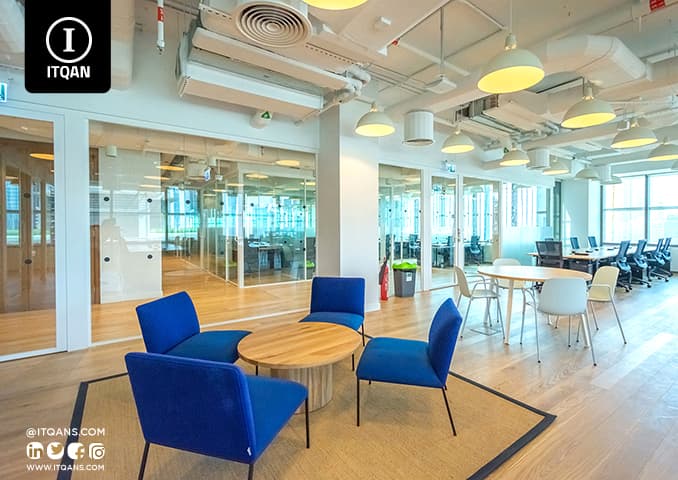Dubai’s free zones are among the most prominent investment destinations in the Middle East, as they provide a business-friendly environment that contributes to promoting economic growth and sustainable development. These areas are distinguished by offering a wide range of facilities and services that meet the needs of companies and investors from various sectors. The conditions for establishing a company in the Dubai Free Zone are pivotal to ensuring compliance with local laws and regulations, in addition to achieving the highest levels of effectiveness and success.
Free zones represent a haven for businesses thanks to the tax incentives and customs exemptions they offer, giving companies the opportunity to expand and grow without traditional financial barriers. In addition, Dubai’s free zones are characterized by advanced infrastructure, which includes advanced logistical facilities, modern technologies, as well as continuous government support to enhance the business environment.
The process of establishing a company in free zones requires adherence to specific conditions that ensure transparency and credibility, contribute to protecting the rights of investors and ensuring business sustainability. These conditions include multiple aspects such as choosing the right business activity, providing the required capital, and complying with legal and environmental standards. All these elements together contribute to creating a prosperous and attractive business environment for investments.
By understanding the conditions for establishing a company in the Dubai Free Zone , investors can benefit from the tremendous opportunities offered by these areas, and contribute to moving the local economy forward. In cooperation with Itqan, companies can obtain the necessary guidance to ensure compliance and achieve sustainable success in one of the most dynamic and competitive markets in the world.

جدول المحتوى
ToggleEstablishing a company in the free zone in Dubai
Establishing a company in the Dubai Free Zone offers tremendous opportunities for investors and entrepreneurs who want to benefit from an advanced and prosperous business environment. Dubai’s free zones offer multiple advantages that make them an attractive destination for companies from all over the world. One of the most important of these advantages is full foreign ownership, as foreign investors can own the company 100% without the need for a local partner, which enhances their ability to fully control their business.
The process of establishing a company in a free zone begins with choosing the appropriate free zone that matches the type of business activity planned. Dubai includes a variety of free zones, such as the Dubai Multi Commodities Center (DMCC), Dubai Internet City, and Dubai Silicon Oasis, each of which specializes in specific sectors and provides infrastructure and services tailored to those sectors. After selecting the free zone, the investor must submit the required applications and documents, which usually include a copy of the passport, a business plan, and information about the proposed capital.
In addition to full ownership, Dubai free zones offer other benefits such as full corporate and individual tax exemption, freedom to fully transfer profits and capital, and no foreign currency restrictions. Free zones also offer advanced infrastructure, including equipped offices, integrated logistics services, and legal and administrative support, which helps companies start their operations quickly and efficiently.
Dubai’s free zones are an ideal environment for startups and large international companies alike, as they facilitate access to regional and international markets. Thanks to these advantages, Dubai has become one of the most prominent global destinations for business and investment, strengthening its position as a global center for trade and business. Establishing a company in the Dubai Free Zone represents a strategic step that allows investors to benefit from the advanced business environment and competitive advantages that the emirate provides.
Conditions for establishing a company in the free zone in Dubai
Establishing a company in the Dubai Free Zone requires compliance with certain conditions and procedures related to the type of company and prescribed business activities. Below are the basic conditions for establishing a company in the Dubai Free Zone:
1. Choosing the type of company:
- You can choose the appropriate company type for your business, such as:
- Limited Liability Company (LLC)
- Sole Establishment
- Branch of a foreign company
- Free Zone Limited Liability Company (FZ-LLC)
2. Determine business activities:
Identify the business activities you wish to engage in and ensure that they comply with the regulations of the chosen free zone.
3. Company name:
A company name must be chosen that complies with the laws of the relevant free zone and must not be similar to the name of another existing company.
4. Capital:
The authorized capital required to establish the company must be determined, which varies depending on the type of company and business activities.
5. Required documents:
Submit the following documents:
- A copy of the passport of the founders and directors
- Personal photo of the founders and directors
- workplan
- The company’s articles of incorporation and articles of association
- Proof of residential address (utility bill or bank statement)
- No objection certificate from the sponsor (for UAE residents with a work visa)
6. Real estate area:
The company must have a legal address in the free zone. An office or work space can be rented according to the requirements of the free zone.
7. Permits and licenses:
Obtaining the necessary permits and licenses to practice commercial activities. Some commercial activities may require special permits from government agencies.
8. Legal Compliance:
Comply with all legal requirements and regulations of the free zone, including submitting annual reports and adhering to financial and tax regulations.
9. Opening a bank account:
Opening a bank account for the company in one of the approved banks in the Emirates.
10. Obtaining residence visas:
Applying for residence visas for founders and employees through the free zone. Most free zones provide visa facilities.
11. Registration and license fees:
Pay the fees required to register and obtain commercial licenses. Fees vary based on the type of company and the free zone chosen.
12. Legal consultations:
It is recommended to seek the assistance of Itqan Company consultants to assist you in the establishment process and ensure compliance with all legal requirements.
13. Special requirements:
Some free zones may impose additional conditions based on the type of activity or size of investment. Be sure to check the specific terms of each free zone.
By following these conditions and procedures, you can establish a company in the Dubai Free Zone and benefit from the many advantages that these zones provide to companies and investors. To obtain accurate and updated information, it is always preferable to contact the relevant free zone authority and seek the assistance of Itqan Company’s consultants who specialize in this field.
The main advantages of establishing a company in the free zone
Establishing a company in the free zones in the United Arab Emirates provides many advantages that make it an attractive option for investors and entrepreneurs. Here are the main advantages of establishing a company in a free zone:
- Full Foreign Ownership: In free zones, foreigners can own 100% of the company without the need for a local partner, providing greater flexibility and independence for international investors.
- Tax exemption: Companies in free zones enjoy many tax exemptions, including exemption from income tax on companies and individuals, and value-added tax in some cases, which enhances profits and facilitates financial operations.
- Ease of transferring funds: Free zones allow full transfer of profits and capital outside the country without restrictions, making it easier for investors to manage their money and global investments.
- Advanced Infrastructure: Free zones provide modern infrastructure and high-quality facilities that support diverse business operations, including offices, warehouses, and business centers.
- Simplified incorporation procedures: Free zones offer simplified and fast incorporation procedures for companies, with fewer requirements and fewer administrative complexities compared to onshore zones.
- Advanced legislation: Free zones provide an advanced legal and legislative framework that guarantees investors’ rights and provides a safe environment for business.
- Strategic location: The UAE has a strategic geographical location between Europe, Asia and Africa, making it a pivotal center for trade, transportation and logistics shipping.
- Access to global markets: Thanks to trade agreements and open economic policies, the UAE provides easy access to regional and international markets.
- Supporting Services: Free zones provide a wide range of supporting services to companies, including legal advice, logistics, and administrative support.
- Innovative environment: Many free zones in the UAE focus on specific sectors such as technology, manufacturing, and logistics, creating an innovative environment and a thriving community for related businesses.
Costs associated with establishing a company in the free zone
Establishing a company in the free zones of the UAE comes with a set of costs that must be considered. These costs vary depending on the type of company, its size, and the benefits you want to take advantage of. Here is an overview of the costs associated with setting up a company in a free zone:
- Registration and licensing fees: These fees include the cost of registering the company and obtaining the license required to practice the business. Fees vary based on the free zone and type of business.
- Office and space rent: The rent depends on the type and size of the space required (office, warehouse, store, or factory). Free zones provide a variety of options that suit different business activities.
- Cost of visas and residency: These costs include fees for issuing work and residency visas for employees and investors. Fees vary based on the number of employees and visa type.
- Administrative fees and services: These fees include the cost of various administrative services provided by the free zone, such as mail, fax, Internet, and other logistical and support services.
- Legal and financial consultation fees: You may need legal and financial advice to establish the company and prepare the necessary documents. These fees vary based on the complexity of the business and the size of the company.
- Operational costs: These costs include monthly expenses for operating the company, such as salaries, electricity, water, and maintenance.
- Marketing and promotion costs: These costs include marketing and advertising campaigns, creating a website, and promoting the brand.
- Insurance: You may need comprehensive insurance for your property, business, and employees. Insurance costs vary based on the type of insurance and potential risks associated with your business.
- Professional services costs: These costs include accounting, financial auditing, and specialized consulting services that may be necessary to conduct the business.
- Annual license renewal fee: You must pay a license renewal fee annually, which varies based on the type of company and free zone.
It is important to conduct a comprehensive feasibility study and estimate all possible costs before starting the process of establishing a company in the free zone. You can also use professional consulting services to get accurate estimates and guidance on how to reduce costs and increase efficiency.

Establishing a company in the free zone
Documents required to establish a company in the free zone in Dubai
To establish a company in the Dubai Free Zone , there are a set of documents that must be submitted to the relevant authorities. Requirements vary slightly between different free zones, but the following list covers the basic paperwork that is usually required:
- Incorporation application form: You must complete and submit the company incorporation application form available at the free zone authority.
- Business Plan: Providing a detailed business plan that explains the company’s activity, goals, and future plans.
- Copy of Passport: Clear and color copies of the passports of all partners, shareholders and directors.
- Personal photographs: Recent personal photographs of all partners, shareholders and directors, usually passport size.
- Local Address: Provide a local address (rent office or work space) in the free zone.
- Memorandum of Association and Articles of Association of the company: Submit a copy of the Memorandum of Association and Articles of Association of the company, duly notarized. The contract must include details regarding the company’s legal structure, names of partners, and ownership percentages.
- Proof of current address: Provide proof of current address to partners and shareholders, such as a utility bill or bank statement.
- Business activity details: Provide a detailed description of the business activity that will be carried out, including the type of products or services.
- No Objection Letter (NOC): If one of the partners or directors is resident in the UAE and works for another company, a NOC letter may be requested from their current employer.
- Copy of current trade licence: If the partner or director owns or manages another company in the UAE, a copy of the current trade licence may be required.
- Financial Reports: In some cases, audited financial reports may be required for the parent company or partners.
- Certificate of good standing: A certificate of good standing may be requested from the police.
- Certificate of no criminal record: Submitting a certificate of no criminal record from the competent authorities.
- Registration fees: Pay the required registration fees, which may include establishment and licensing fees.
- Submitting documents: Submit all required documents to the relevant free zone authority.
- Application review: The authority reviews the application and documents submitted.
- Obtaining approvals: After the application is approved, a certificate of incorporation and a commercial license are issued.
- Renting a work space: Completing a lease contract for the office or work space within the free zone.
- Obtaining visas: Apply for work and residence visas for investors and employees.
Be sure to contact your specific free zone authority for an accurate list of requirements and procedures, as requirements can vary based on the type of business and location.
In conclusion, establishing a company in the Dubai Free Zone is an ideal opportunity to achieve success in a growing and supportive business environment. The conditions and requirements that entrepreneurs and investors must meet are varied, but they ensure that the established companies have the ability to compete and grow sustainably. By complying with these conditions, companies can benefit from a wide range of benefits offered by free zones, such as tax exemptions and full ownership by foreigners, as well as access to advanced infrastructure and new markets.
Itqan Company, with its extensive experience and deep knowledge of the laws and procedures in Dubai, provides the necessary support to entrepreneurs to achieve their business ambitions. Whether it is through providing legal advice or assistance in preparing documents and submitting applications, Itqan is committed to facilitating all aspects related to establishing companies in the free zone. By cooperating with Itqan, you can focus on achieving your vision and expanding your business activities confidently and effectively.
In the end, choosing a free zone in Dubai is a strategic step towards commercial success. While adhering to the required conditions, companies can benefit from the unique opportunities provided by these zones, which contributes to achieving their development goals and strengthening their presence in the dynamic and diverse Dubai market.
The most important frequently asked questions about establishing a company in the free zone
What is a free zone?
A free zone is a geographical area within the UAE in which companies are exempt from some taxes and are granted special facilities such as full foreign ownership, freedom to transfer funds, and ease of establishment procedures.
Can foreigners fully own the company in free zones?
Yes, foreigners are allowed to own 100% of the company in free zones.
What is the cost of establishing a company in the free zone?
Costs vary based on the type of company and the free zone chosen. Costs typically include registration fees, licensing fees, office rent, and visa fees.
Can visas be obtained for employees?
Yes, companies in free zones can obtain residence visas for employees in accordance with free zone policies.
Can a company in the free zone carry out business within the Emirates?
Companies in free zones can conduct business inside the free zone and outside the Emirates. To do business within the UAE (outside the free zone), it must deal with a local service agent or establish a local branch.
How long does it take to obtain a license?
The duration of obtaining the license depends on the free zone and the type of company, and usually takes from two weeks to a month.



